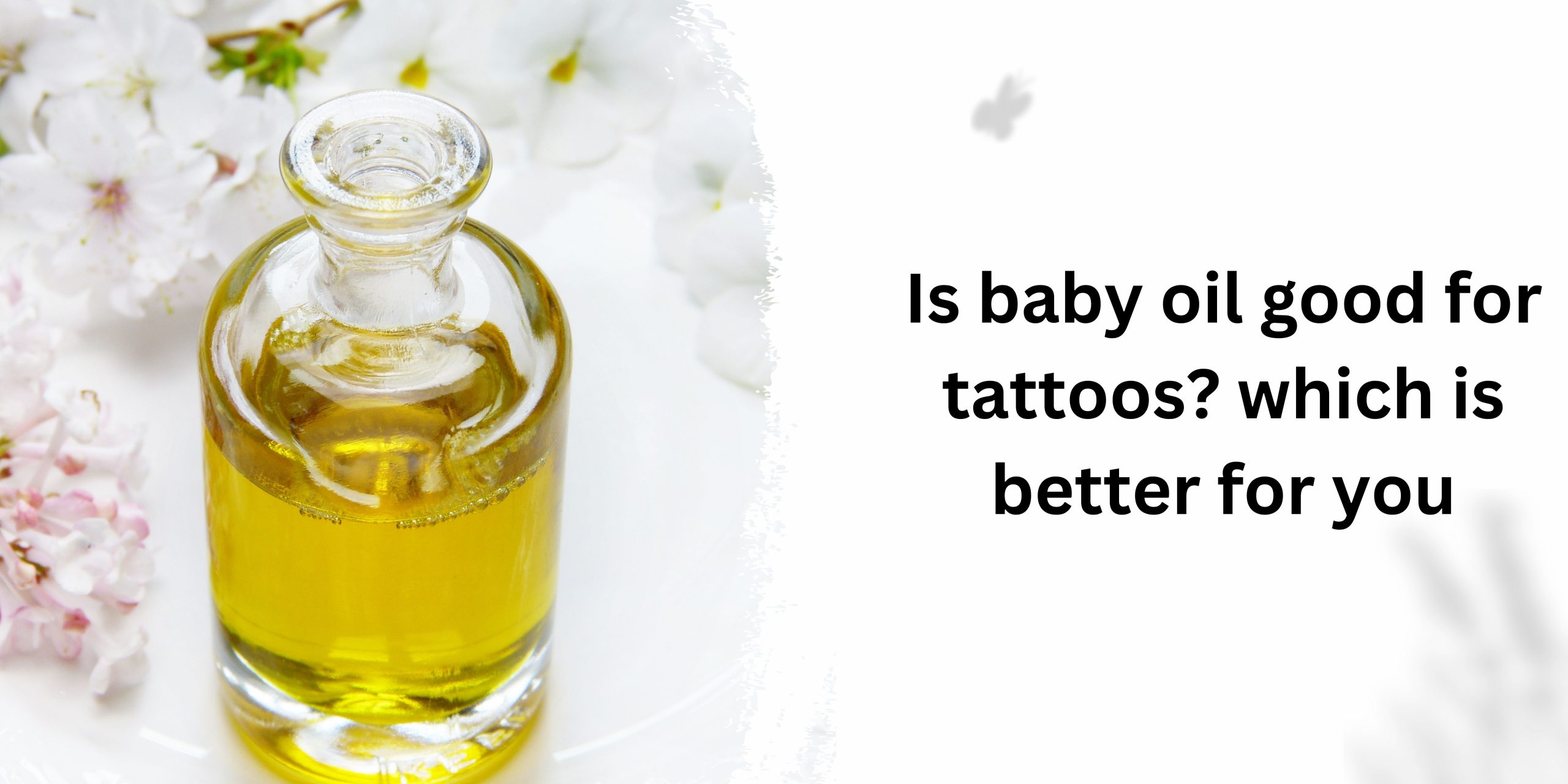Caring for your tattoos during the healing phase is essential to ensure their longevity and vibrancy. Amidst the myriad of aftercare advice floating around, a common question arises: Is baby oil good for tattoos? Let’s delve into the world of body art and explore this unconventional query, uncovering tales of inked journeys and the mysteries of baby oil.
Table of Contents
ToggleWhat is Baby Oil?
Baby oil is a popular skincare product primarily used for moisturizing and nurturing delicate skin, especially in infants. It is typically made from mineral oil, a clear, odorless derivative of petroleum known for its skin-soothing and hydrating properties. Baby oil is formulated to be hypoallergenic and free of harsh chemicals, making it suitable for sensitive skin.
Baby oil’s ability to lock in moisture makes it an effective choice for preventing or alleviating skin dryness. Its smooth texture and easy application make it a convenient option for individuals of all ages seeking a gentle and effective moisturizing solution.
Can Baby Oil be Used on Tattoos?
Using baby oil on tattoos has been a subject of much debate, with varying perspectives on its effectiveness and potential drawbacks. To offer a comprehensive view, let’s delve into the pros and cons of using baby oil on tattoos.
Pros and Cons of Using Baby Oil on Tattoos
Moisturizing Properties: Baby oil’s moisturizing properties can help keep the tattooed skin hydrated and prevent dryness during the healing process.
Gentle on Skin: Baby oil is formulated to be gentle and suitable for sensitive skin, reducing the risk of irritation or adverse reactions.
Readily Available: Baby oil is easily accessible and can be found in most drugstores or supermarkets, making it a convenient option for tattoo aftercare.
However, there are also potential drawbacks to consider:
Potential for Clogged Pores: Baby oil, being an oil-based product, may have the potential to clog pores, hindering the tattoo’s ability to breathe and impeding the healing process.
Risk of Infections: If not used properly or if the tattooed area is not properly cleaned before application, baby oil can pose a risk of infections.
Overall, while baby oil can provide moisturization to the tattooed skin, it is important to exercise caution and consider the individual’s skin type and the specific needs of the tattoo. It is recommended to consult with a professional tattoo artist or dermatologist for personalized aftercare advice.
Frequently Asked Questions
Q: Can I use coconut oil or Johnson baby oil on the tattoo?
Choosing between coconut oil and Johnson’s baby oil for a new tattoo requires careful consideration of their respective properties and effects on the tattoo and skin. Here’s a comparison to help you make an informed decision:
Coconut Oil for Tattoos:
Pros:
Natural Moisturizer: Coconut oil is a natural emollient that effectively moisturizes the skin, helping prevent dryness and flakiness during the tattoo healing process.
Antimicrobial Properties: It contains lauric acid, known for its antimicrobial properties, which can help protect the tattooed area from potential infections.
Soothes Irritation: Coconut oil’s soothing properties can help alleviate any discomfort or itching that often accompanies the tattoo healing process.
Cons:
Potential for Allergic Reactions: Some individuals may be sensitive or allergic to coconut oil, leading to skin irritation or allergic reactions.
Thickness: The thick consistency of coconut oil may create a heavy barrier on the skin, potentially obstructing the tattoo’s ability to breathe and impeding the healing process.
Johnson’s Baby Oil for Tattoos:
Pros:
Gentle and Mild: Johnson’s baby oil is specifically formulated for delicate baby skin, making it a gentle option for individuals with sensitive skin or those prone to skin irritation.
Effective Moisturization: Its mineral oil base effectively moisturizes the skin without leaving a heavy residue, helping prevent dryness and flakiness on the tattooed area.
Cons:
Potential for Clogged Pores: The mineral oil in Johnson’s baby oil can potentially clog pores and hinder the tattoo’s ability to breathe, which is crucial for the healing process.
Risk of Fading: Prolonged use may contribute to the fading of the tattoo over time, affecting the vibrancy and longevity of the ink.
Conclusion
When it comes to using baby oil or other skincare products on tattoos, it’s important to be mindful of the specific needs of your tattoo and your skin. While baby oil can provide moisturization, it’s crucial to consider the potential risks and consult with professionals for personalized aftercare advice.
Remember, proper tattoo aftercare involves keeping the tattoo clean, moisturized, and protected from excessive sunlight or irritants. By following the guidance of experienced tattoo artists and dermatologists, you can ensure that your tattoo remains vibrant and healthy for years to come.
For more information and a wide range of tattoo-related products, visit TKTX Numbing Cream Store.






